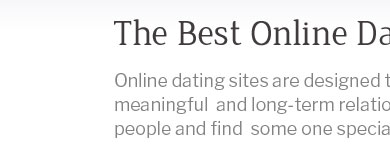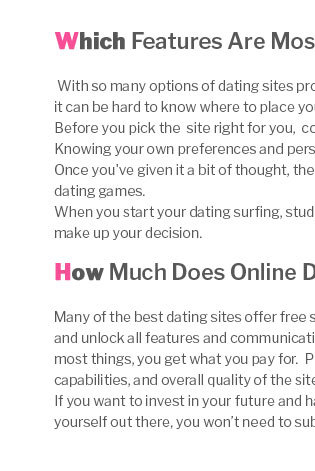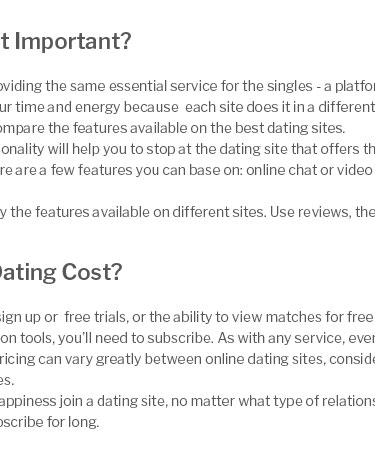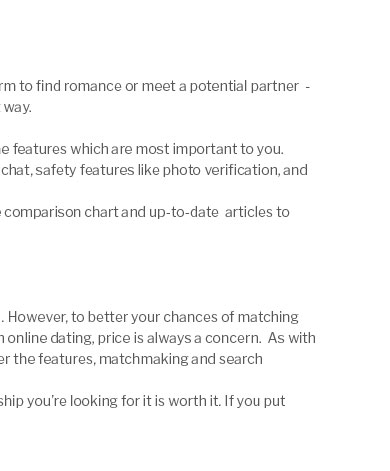dating app for married choices and boundariesUnderstanding the landscapeInterest in a dating app for married people spans multiple intentions: consensual non‑monogamy, open relationships, separation in progress, or discreet companionship. The healthiest approach begins with clarity, consent, and respect for all parties. Consent and honesty protect everyone. Common motivations- Exploring consensual non‑monogamy with transparent agreements.
- Finding like‑minded people who respect discretion and boundaries.
- Seeking conversation or companionship without pressure for intimacy.
- Transition phases in a relationship, handled with care and ethics.
Key features to evaluatePrivacy and discretion- Photo blurs, private albums, and fine‑grained profile visibility.
- Alias support and minimal mandatory profile fields.
- Device‑level locks and passcodes for the app.
Consent and filtering- Profile tags for relationship structures (ENM, polyam, monogamish).
- Clear consent badges and boundaries in profiles.
- Filters that respect deal‑breakers and intentions.
Discovery controls- Geofencing, distance caps, and hide‑from‑contacts features.
- Blocklists and report tools that work quickly and reliably.
Messaging and safety- Screenshot warnings or disappearing media options.
- Built‑in verification signals to reduce fake profiles.
Data practices- Transparent policies on data sharing and deletion.
- Private payments, clear billing names, and easy cancellation.
Choose tools that match your risk tolerance. Comparison of popular option categories- Discretion‑first niche apps: Strong privacy controls, smaller communities, slower match flow. Best for users prioritizing anonymity.
- Open‑relationship‑friendly mainstream apps: Larger pools and flexible tags; requires careful profile wording to set expectations.
- Kink and alternative lifestyle communities: Culture of consent and boundaries; varied verification; may involve learning community norms.
- Location‑light or travel‑optional platforms: Emphasize chatting and compatibility over immediate proximity.
- Verification‑heavy platforms: Better signal‑to‑noise; more upfront effort and identity checks.
Some people compare niche choices with a broader discovery tool such as an adult dating app to gauge fit, privacy, and culture. Ethics, boundaries, and emotional careAlign expectations early: define what’s allowed, what’s off‑limits, and how you will communicate feelings and concerns. Use written agreements in your own words to avoid misunderstandings. - Share boundaries in profiles and messages.
- Respect hard limits instantly.
- Prioritize emotional aftercare for everyone involved.
If you’re processing complex feelings or fallout, neutral support such as affair support groups near me can provide perspective and coping strategies. Compassion reduces harm. Step‑by‑step setup checklist- Define intentions and hard limits in writing.
- Pick an app category that fits your privacy needs.
- Create a values‑forward profile with clear consent language.
- Enable safety features: blurs, hidden location, and blocklists.
- Vet matches through gradual disclosure and a boundary check.
- Use neutral, public meeting places and share plans with a trusted contact.
- Review experiences and adjust boundaries after each interaction.
Risk reduction tips- Keep identifying details private until trust is built.
- Use separate contact methods and secure messaging.
- Confirm intentions match before moving off‑platform.
- Recognize pressure tactics and disengage.
- Document agreements to prevent friction.
Consent‑first connections matter. FAQIs using a dating app for married people legal?Legality depends on local laws and the app’s policies. In many places, consensual adult relationships are legal, but you remain responsible for following regional regulations, platform terms, and any agreements within your relationship. How do I talk with my spouse about opening the relationship?Start with values rather than outcomes. Share reasons, needs, and boundaries; ask for theirs; and co‑create rules that protect emotional safety. Consider a couples‑friendly counselor or mediator to structure the conversation and capture agreements in writing. Which privacy settings are most important?Prioritize photo blurs, private albums, contact‑hiding, location controls, strong authentication, and easy data deletion. Use an alias, separate email, and payment methods that do not reveal sensitive details. How do algorithms treat a married status or ENM tag?Many platforms use tags to refine visibility. Clear labels (ENM, polyam, partnered) help match with people seeking compatible structures while filtering out mismatches. Read the platform’s matching help pages to understand how tags influence discovery. How can I spot scams or fake profiles?Watch for rushed intimacy, solicitation, off‑platform money requests, and inconsistent details. Prefer verified profiles, conduct a quick reverse‑image check when appropriate, and end contact if pressured or if boundaries are ignored. Should I choose a niche app or a general adult platform?Niche apps offer focused communities and discretion features, while general platforms provide larger pools and flexible tags. Evaluate privacy, culture fit, verification, and moderation quality; test settings and communication norms before committing. How do I separate dating activity from work and home life?Use a dedicated device profile, separate email and handles, app lock, and silent notifications. Keep identifiable calendar entries generic and avoid linking social accounts that reveal personal networks.

|



















